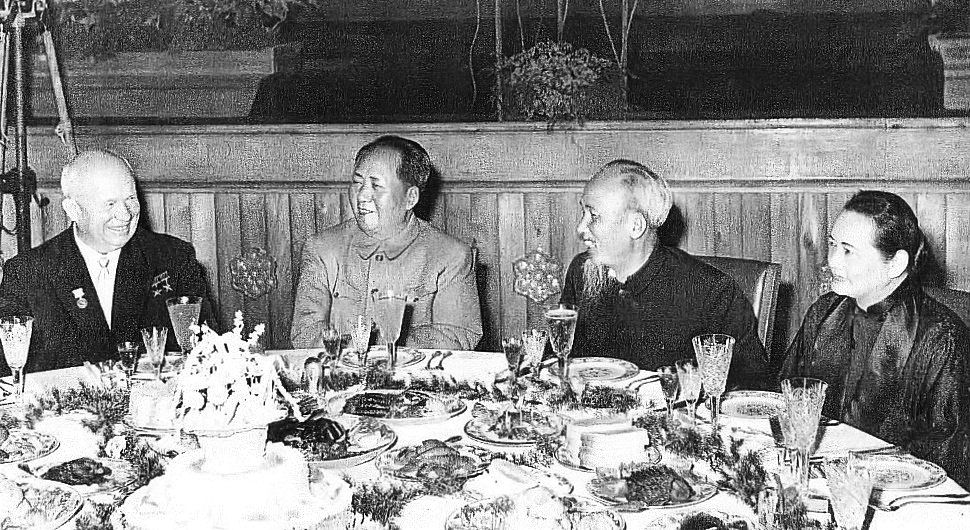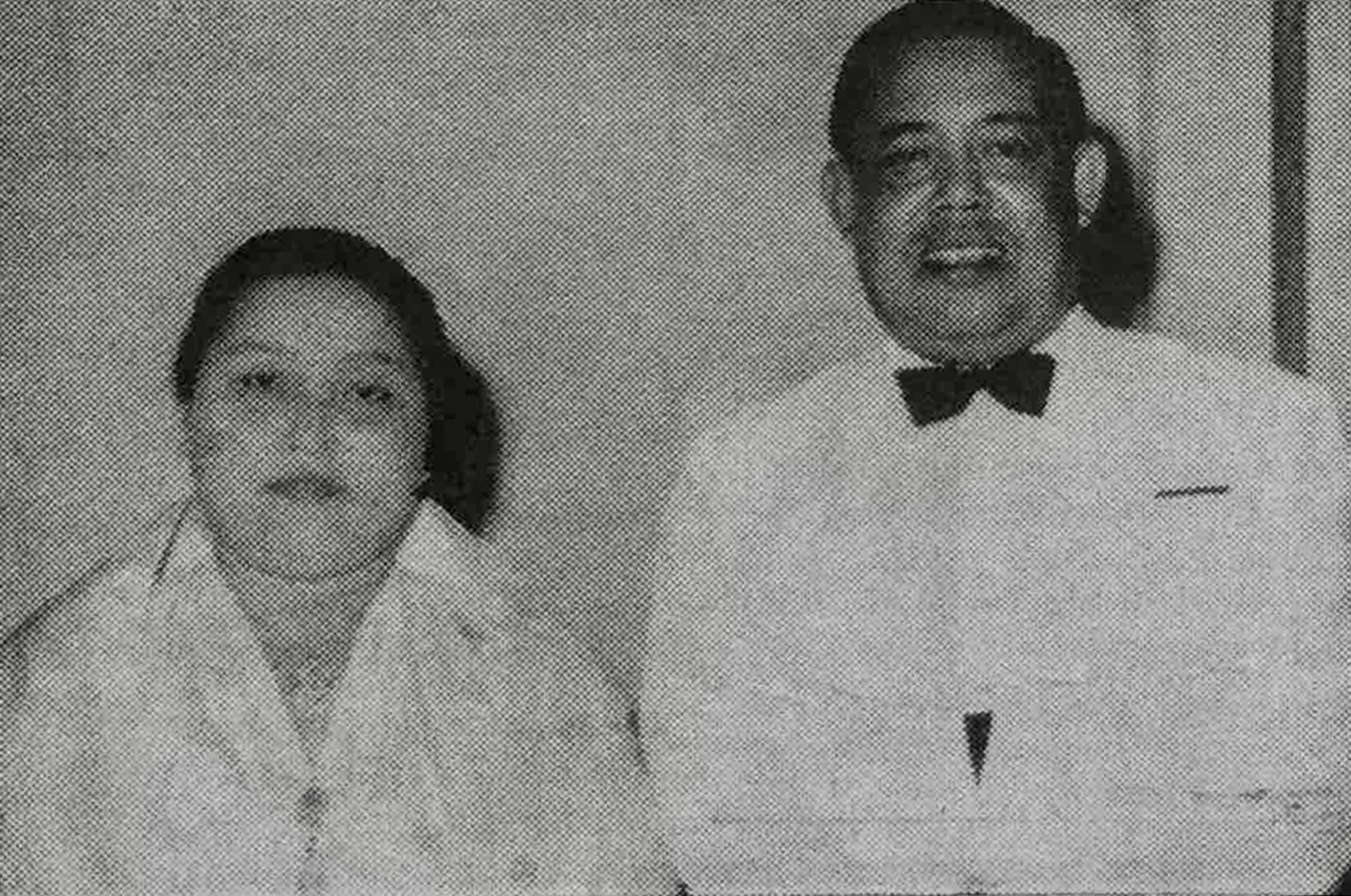|
Othman Bidin
Othman bin Bidin (born 3 November 1913) was a Bruneian teacher, renowned for being the first local to serve as principal of the Brunei Malay Teachers' College (MPMB), first principal of the Seri Begawan Religious Teachers College (MPUSB), and member of the Legislative Council in the 1970s. He was a strong advocate for enhancing the role of teachers and played a crucial role in championing their rights and welfare. Alongside other key figures, Othman made significant contributions to the development of Brunei's educational system, particularly through his commitment to improving teaching standards and promoting the value of education in the country. Early life and education Othman bin Bidin was born in 1913 in Kampong Tarab Bau, a village located along the Brunei River. His early life and education in this rural setting laid the foundation for his later contributions to the nation's development. From 1931 to 1936, he studied at Sultan Idris Training College, where he be ... [...More Info...] [...Related Items...] OR: [Wikipedia] [Google] [Baidu] |
Dato Paduka
The Malay language has a complex system of styles, titles and honorifics which are used extensively in Brunei, Indonesia, Malaysia, Singapore, and the southern Philippines. Brunei, Malaysia, Singapore and several provinces in Indonesia regularly award honorary and life titles. What follows in this article is specific to the Malaysian system. References to Brunei and Indonesia are given when pertinent. In Malaysia, all non-hereditary titles can be granted to both men and women. Every title has a form which can be used by the wife of the title holder. This form is not used by the husband of a titled woman; such a woman will bear a title which is the same as a titled man. Former use Singapore, whose Malay royalty was abolished by the British colonial government in 1891, has adopted civic titles for its leaders. The Philippines historically used Malay titles during its pre-Hispanic period (especially under Bruneian influence), as evidenced by the titles of historical figur ... [...More Info...] [...Related Items...] OR: [Wikipedia] [Google] [Baidu] |
Straits Settlements
The Straits Settlements were a group of British territories located in Southeast Asia. Headquartered in Singapore for more than a century, it was originally established in 1826 as part of the territories controlled by the British East India Company, the Straits Settlements came under British Raj control in 1858 and then under direct British control as a Crown colony on 1 April 1867. In 1946, following the end of the Second World War and the Japanese occupation, the colony was dissolved as part of Britain's reorganisation of its Southeast Asian dependencies in the area. The Straits Settlements originally consisted of the four individual settlements of Penang, Malacca, Dinding and most importantly Singapore—its capital and was nicknamed the " Gibraltar of the East". The latter, having been the most developed settlement including its port, was a major British asset in the area and was the key strategy to British imperial interwar defence planning. Christmas Island and the ... [...More Info...] [...Related Items...] OR: [Wikipedia] [Google] [Baidu] |
Kuala Lumpur
, anthem = ''Maju dan Sejahtera'' , image_map = , map_caption = , pushpin_map = Malaysia#Southeast Asia#Asia , pushpin_map_caption = , coordinates = , subdivision_type = Country , subdivision_name = , subdivision_type1 = Administrative areas , subdivision_name1 = , established_title = Establishment , established_date = 1857 , established_title2 = City status , established_date2 = 1 February 1972 , established_title3 = Transferred to federal jurisdiction , established_date3 = 1 February 1974 , government_type = Federal administrationwith local government , governing_body = Kuala Lumpur City Hall , leader_title = Mayor , leader_name = Mahadi bin Che Ngah , total_type = Federal territory , area_footnotes = , area_total_km2 = ... [...More Info...] [...Related Items...] OR: [Wikipedia] [Google] [Baidu] |
Minister Of National Unity (Malaysia) ...
The Minister of National Unity is Aaron Ago Dagang, since 3 December 2022. The minister administers the portfolio through the Ministry of National Unity . List of ministers of national unity The following individuals have been appointed as Minister of National Unity, or any of its precedent titles: Political party: List of Ministers in the Prime Minister's Department (National Unity and Integration) Political party: References {{Malaysian federal ministerial portfolios National Unity Nationalism is an idea and movement that holds that the nation should be congruent with the State (polity), state. As a movement, nationalism tends to promote the interests of a particular nation (as in a in-group and out-group, group of peo ... [...More Info...] [...Related Items...] OR: [Wikipedia] [Google] [Baidu] |
National Archives Of Malaysia
The National Archives of Malaysia ( ms, Arkib Negara Malaysia) is a Malaysian archive located in Kuala Lumpur. History The National Archives of Malaysia were established in 1957 as the Public Records Office before changing to their current name in 1963. They established their current location in Jalan Duta in 1982. The National Archives Act 2003 (Act 629) was passed in 2003, providing the legislative basis for the National Archives of Malaysia for branch of archive. See also * List of national archives References External links National Archives of Malaysia Federal ministries, departments and agencies of Malaysia Malaysia Malaysia ( ; ) is a country in Southeast Asia. The federation, federal constitutional monarchy consists of States and federal territories of Malaysia, thirteen states and three federal territories, separated by the South China Sea into two r ... Government agencies established in 1957 1957 establishments in Malaya Malaysian culture A ... [...More Info...] [...Related Items...] OR: [Wikipedia] [Google] [Baidu] |
Cold War In Asia
The Cold War in Asia was a major dimension of the world-wide Cold War that shaped largely diplomacy and warfare from the mid-1940s to 1991. The main players were the United States, the Soviet Union, China, Taiwan (Republic of China), North Korea, South Korea, North Vietnam, South Vietnam, Cambodia, Thailand, Indonesia, Malaysia, India, Bangladesh, Pakistan and Afghanistan. Other countries were also involved, and less directly so was the Middle East. In the late 1950s division between China and the Soviet Union began to emerge, culminating in the Sino-Soviet split, and the two fought for control of Communist movements across the world, especially in Asia. China Relations with United States American images of China Harold Isaacs published ''Scratches on our Minds: American Images of China and India'' in 1955. By reviewing the popular and scholarly literature on Asia that appeared in the United States and by interviewing many American experts, Isaacs identified six stages of America ... [...More Info...] [...Related Items...] OR: [Wikipedia] [Google] [Baidu] |
Pengiran Anak Mohamed Alam
Pengiran Anak Mohamed Alam (18 October 1918 – 14 December 1982), sometimes spelled Muhammad Alam, was a nobleman, magistrate and politician who became the fourth Speaker of the Brunei Legislative Council from 1971 until 1974 and Chief (''Yang Di-Pertua'') of ''Jabatan Adat Istiadat Negara'' from 1954 to 1981. He is the father of Pengiran Anak Saleha, the queen consort of Hassanal Bolkiah, the current Sultan of Brunei. He was also a maternal grandfather of Al-Muhtadee Billah, the Crown Prince. Early life and education Pengiran Anak Mohamed Alam was in Bandar Seri Begawan, Brunei Town born on 18 October 1918. His father, ''Pengiran Bendahara'' Pengiran Anak Abdul Rahman, one of the Vizier (Brunei), Wazirs in Brunei, was a younger brother of Sultan Muhammad Jamalul Alam II, which made him first cousin of Sultan Omar Ali Saifuddien III. His sister, Queen Damit of Brunei, Pengiran Anak Damit married Sultan Omar Ali Saifuddien III. As the member of the Royal Family, Pengiran Anak M ... [...More Info...] [...Related Items...] OR: [Wikipedia] [Google] [Baidu] |
Formation Of Malaysia
The Malaysia Agreement or the Agreement relating to Malaysia between United Kingdom of Great Britain and Northern Ireland, Federation of Malaya, North Borneo, Sarawak and Singapore (MA63) was the agreement which combined North Borneo, Sarawak, and Singapore with the existing states of the Federation of Malaya, the resulting union being named Malaysia.''See'': The UK Statute Law Database: the Acts of the Parliament of the United KingdoMalaysia Act 1963/ref>''See'': The UK Statute Law Database: the Acts of the Parliament of the United KingdoFederation of Malaya Independence Act 1957 (c. 60)/ref> Singapore was later expelled from Malaysia, becoming an independent state on 9 August 1965. Background The Malayan Union was established by the British Malaya and comprised the Federated Malay States of Perak, Selangor, Negeri Sembilan, Pahang; the Unfederated Malay States of Kedah, Perlis, Kelantan, Terengganu, Johor; and the Straits Settlements of Penang and Malacca. It came into being ... [...More Info...] [...Related Items...] OR: [Wikipedia] [Google] [Baidu] |
Government Of Malaysia
The Government of Malaysia, officially the Federal Government of Malaysia ( ms, Kerajaan Persekutuan Malaysia), is based in the Federal Territory of Putrajaya with the exception of the legislative branch, which is located in Kuala Lumpur. Malaysia is a federation comprising the 11 States of Malaya, the Borneo States of Sabah and Sarawak, and 3 Federal Territories operating within a constitutional monarchy under the Westminster system and is categorised as a representative democracy. The federal government of Malaysia adheres to and is created by the Federal Constitution of Malaysia, the supreme law of the land. The federal government adopts the principle of separation of powers under Article 127 of the Federal Constitution of Malaysia, and has three branches: executive, legislature and judiciary. The state governments in Malaysia also have their respective executive and legislative bodies. The judicial system in Malaysia is a federalised court system operating uniformly through ... [...More Info...] [...Related Items...] OR: [Wikipedia] [Google] [Baidu] |
Education In Brunei
Education in Brunei is provided or regulated by the Government of Brunei through the Ministry of Education () and the Ministry of Religious Affairs (). The former manages most of the government and private schools in the country where as the latter specifically administers government schools which provide the or Islamic religious education. Formal education comprises compulsory, post-secondary and higher education. Compulsory education may be of two types: general education which takes twelve years and consists of pre-school, primary and secondary; and Islamic religious primary education which lasts seven years and is compulsory for Muslim pupils in Brunei. General education may be attained in government or private schools, where as religious education is attained in government religious schools. Post-secondary education may consist of sixth form, which is an extension of secondary and allows direct entrance to higher education; and technical and vocational education which are ... [...More Info...] [...Related Items...] OR: [Wikipedia] [Google] [Baidu] |
Barisan Pemuda
Barisan Pemuda (BARIP), also known as the Youth Front or Brunei Youth Front, was an early left-wing political party formed in Brunei. It began as a political youth organisation in late 1946 with the goal of bringing the Bruneian Malays together and achieving independence for Brunei. It was said that the three main founders of BARIP were Salleh Masri, Pengiran Yusuf, and Jamil Al-Sufri. Motivated by nationalist movements throughout Southeast Asia, BARIP embraced emblems such as its motto (similar to UMNO) and flag (similar to the Indonesian flag), signifying its support for Indonesian National Revolution and as symbols of struggle. Despite its brief existence, BARIP was crucial in mid-20th century Brunei in advocating Malay nationalism and anti-colonial nationalism. It too prioritise social concerns, such as providing more schooling and government positions for Bruneian Malays over Chinese people. Background The (PGGMB), which sought to safeguard and enhance the status o ... [...More Info...] [...Related Items...] OR: [Wikipedia] [Google] [Baidu] |



